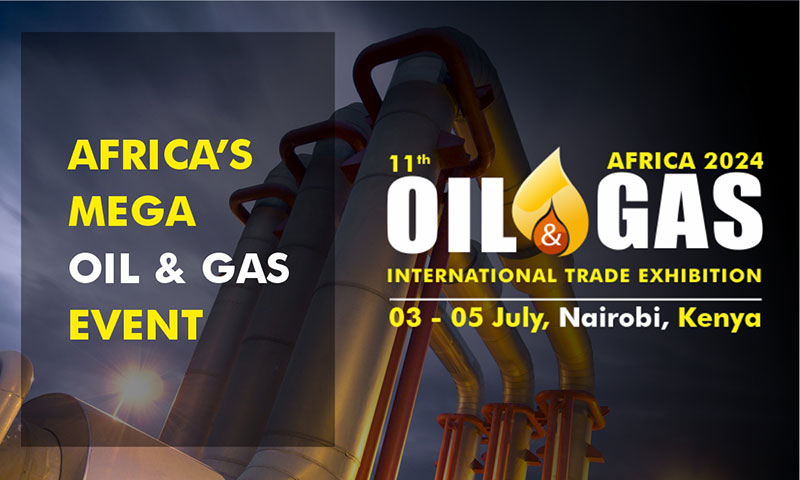

Regional Power Play in Tussle Over New Route of Uganda Oil Pipeline
Posted on :Tuesday , 20th October 2015
The race to build Uganda's oil pipeline has been thrown open, realigning the regional power play after Tanzania inked an agreement with Uganda over a possible southern route early this week.
Tanzania argues that its route will offer a cheaper option in transporting Uganda's crude oil.
Kenya has now taken a tough stance to guard its interests that include the Lamu Port Southern Sudan-Ethiopia Transport (Lapsset) corridor project pegged on the pipeline.
Kenya's acting Energy Cabinet Secretary Henry Rotich, said the country will pursue the route that had been agreed upon by the two heads of state, President Uhuru Kenyatta and Yoweri Museveni, two months ago.
The political agreement between Kenya and Uganda to develop the Turkana-Lamu route still stands.
Kenya has always expressed its willingness to bear part of the costs of the pipeline that will pass through its territory.
"We cannot divert from the agreement signed by Kenya and Uganda. We will stick to it until we receive communication otherwise," Daniel Kiptoo, the petroleum legal adviser to Kenya's Energy ministry said.
The Tanzania agreement on the other hand has the support of oil exploration company Total. The oil firm has cited security concerns on the northern route that passes through areas prone to insecurity.
Speaking to Reuters in Paris, Total chief executive Patrick Pouyanne said that the firm's decision to push through the Tanzania route was influenced by security concerns on the Kenyan route.
"The debates on security within Kenya are very important to us. We are working with the governments of Kenya, Tanzania and Uganda and we will reach a solution that will be beneficial to Uganda and neighbouring countries," Mr Pouyanne said.
President Museveni will be meeting with the other three heads of State, Uhuru Kenyatta of Kenya, Paul Kagame of Rwanda and Salva Kiir of South Sudan for the 11th Summit of Northern Corridor Integration Project at the weekend in Nairobi and the project is part of the agenda.
Uganda's energy minister Irene Muloni told The EastAfrican that the new development would be reviewed by all the parties.
South Sudan has thrown its weight behind Kenya, noting that the northern route jointly agreed with Kenya and Uganda gives it a viable option for its oil transportation.
"We haven't seen the document nor notification on the signing of this pipeline agreement between Tanzania and Uganda. Our position is that we are committed on the northern route that terminates at Lamu," South Sudan foreign affairs minister Barnaba Marial Benjamin said.
Uganda has been looking at various options of developing the crude oil export pipeline that include Hoima-Lacor-Lamu Port, Hoima-Nairobi-Mombasa Port; and now the Hoima-Tanga route.
Dr Fred Kabagambe Kaliisa, the Permanent Secretary of Uganda's Ministry of Energy and Mineral Development, said the Tanzania agreement will see the parties work together to appraise the merit of a crude export pipeline option through Tanzania with a view to achieving the lowest unit transportation cost for crude oil from Uganda.
"If we can get at least cost pipeline to Tanga, then our crude oil will be exported cheaply. We need to carry out due diligence," Dr Kabagambe Kaliisa said.
The latest agreement, seen as an outcome of corporate dealings, came hot on the heels of two meetings that Jabier Rielo, Total's exploration and production Africa division vice president for East Africa, held with both Presidents Museveni and Jakaya Kikwete of Tanzania.
Uganda had earlier signed a Memorandum of Understanding (MoU) with oil exploration firms that included Total Exploration, Production Uganda and Britain's Tullow oil.
Tanzania is pushing for the cost option to lock out Kenya's northern route and reap from its proposed route. The Kenyan route is estimated to cost $4 billion, while experts say the southern route could cost less.
The acting Permanent Secretary of Tanzania's Ministry of Energy and Minerals Ngosi Mwihava, said that the country would come with good option for Uganda.
"This infrastructure will stand the test of time in our regional co-operation. The due diligence is a valid exercise because you have to justify the route you are going to consider to justify the least cost option," Mr Mwihava said.
Industry analysts note that the financing of the pipeline was going to be an issue, with questions being asked on how much Uganda would finance the construction of the pipeline and what appetite the regional players involved would have in the construction of the pipeline.
Ahmed Salim, a senior associate at the New York based Teneo Intelligence said Uganda was keen on the cost factor of the pipeline because of the current cost of oil globally.
Divergent interpretations of what was agreed on by Presidents Museveni and Kenyatta had emerged.
While Kenya understands that the routing was agreed upon but must address the four issues raised as the project implementation goes along, Uganda insists that the conditions precedent to the development of the pipeline along the Hoima-Lokichar-Lamu route is in the technical and Project Steering Committee report and not the presidents agreement.
The Hoima-Lokichar-Lamu agreement was subject to Kenya guaranteeing security on its side of the pipeline, agreeing on financing arrangements, guaranteeing transit/tariff fees, not higher than any of the alternative routes and guaranteeing no delays in the implementation of the project.
Please Select an Option
-
Exhibiting
-
Visiting
-
Information

Expogroup
Expogroup is a full service exhibition organiser with over 28 Years experience in International trade exhibitions. Our current portfolio includes 28 annual exhibitions from a diverse range of industries being held across the Middle East & Africa.
EXPOGROUP © 2025 | Privacy policy
